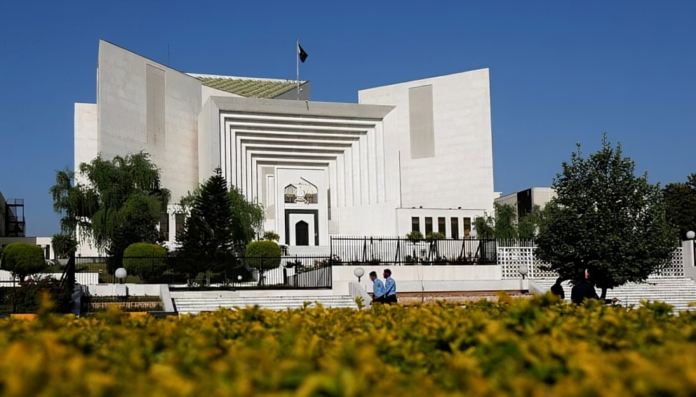With the government maintaining silence on the precise details of its proposed Constitutional Amendment Package, several questions arise as we try to decipher the limited information currently available. A central feature of the Constitutional Amendment Package appears to be the establishment of a separate Constitutional Court, which is designed to handle matters related to constitutional issues, particularly those falling under Articles 184, 185, and 186 of the Constitution.
This raises significant concerns about the new court’s relationship with the existing Supreme Court. Will this Constitutional Court be equivalent in power and authority to the Supreme Court, or will it function as a specialized court under the supervision of the Supreme Court, focusing exclusively on constitutional cases? Further, who will appoint the judges of this new court? Will they be retired judges, newly appointed ones, or sitting Supreme Court judges? And could Chief Justice Isa potentially be considered to head this new court?
Government sources argue that the creation of the Constitutional Court, as part of the Constitutional Amendment Package, is essential for reducing the overwhelming backlog of cases in the Supreme Court, which currently stands at over 60,000 cases. These cases have often dragged on for years, with many involving ordinary citizens whose legal disputes have been delayed for decades. According to the government’s position, the establishment of a Constitutional Court would allow the Supreme Court to prioritize providing timely justice to Pakistan’s 250 million citizens while delegating constitutional matters to the new court.
However, critics remain skeptical, viewing this move as potentially politically motivated rather than solely a solution to judicial inefficiency. Legal experts argue that part of the Supreme Court’s backlog stems from its focus on high-profile constitutional and political cases, which often take precedence over ordinary litigation. Therefore, they question whether a separate Constitutional Court will genuinely resolve the issue without addressing underlying inefficiencies within the judicial system itself.
Another major component of the Constitutional Amendment Package is the highly controversial proposal to extend the retirement age for judges in the superior judiciary. Proponents suggest that this extension is part of a broader fiscal reform aimed at reducing the burden of pensions on the state’s finances. However, it seems that this proposed extension would apply solely to judges and not the wider civil bureaucracy, prompting critics to question the real motives behind this aspect of the package. Opposition parties have argued that the proposed extension is more about political expediency and less about fiscal prudence, adding to the already mounting concerns about the package’s true intentions.
Moreover, the Constitutional Amendment Package includes a significant change to the appointment process for the Chief Justice of Pakistan (CJP). Under this proposal, a five-member panel of Supreme Court judges would recommend a candidate for the CJP position, but the final decision would rest with the government. This marks a significant departure from the current system, where the Judicial Commission of Pakistan plays a leading role in the appointment of judges to the Supreme Court, High Courts, and the Federal Shariat Court.
If members of this newly proposed panel include representatives from both the government and opposition, it could lead to the politicization of the judiciary, with judicial appointments becoming subject to political bargaining and negotiations, which have historically affected other key government positions. Such a shift could severely compromise the judiciary’s independence and erode public trust in its impartiality.
Further, reports suggest the Constitutional Amendment Package proposes the merger of the Judicial Commission and the Parliamentary Committee responsible for appointing judges. This merger is likely to increase political influence over the judiciary, further weakening the current system of checks and balances. The package also includes a proposal to allow inter-provincial transfers of High Court judges, a move likely to face resistance as it raises concerns about the autonomy and jurisdiction of the provincial High Courts.
Also Read: Ex-Minister Durrani Seeks to Unite Opposition
As more details of the Constitutional Amendment Package emerge, the overarching question remains whether these reforms will lead to a more efficient judiciary or whether they will compromise its independence and subject it to further political manipulation.


